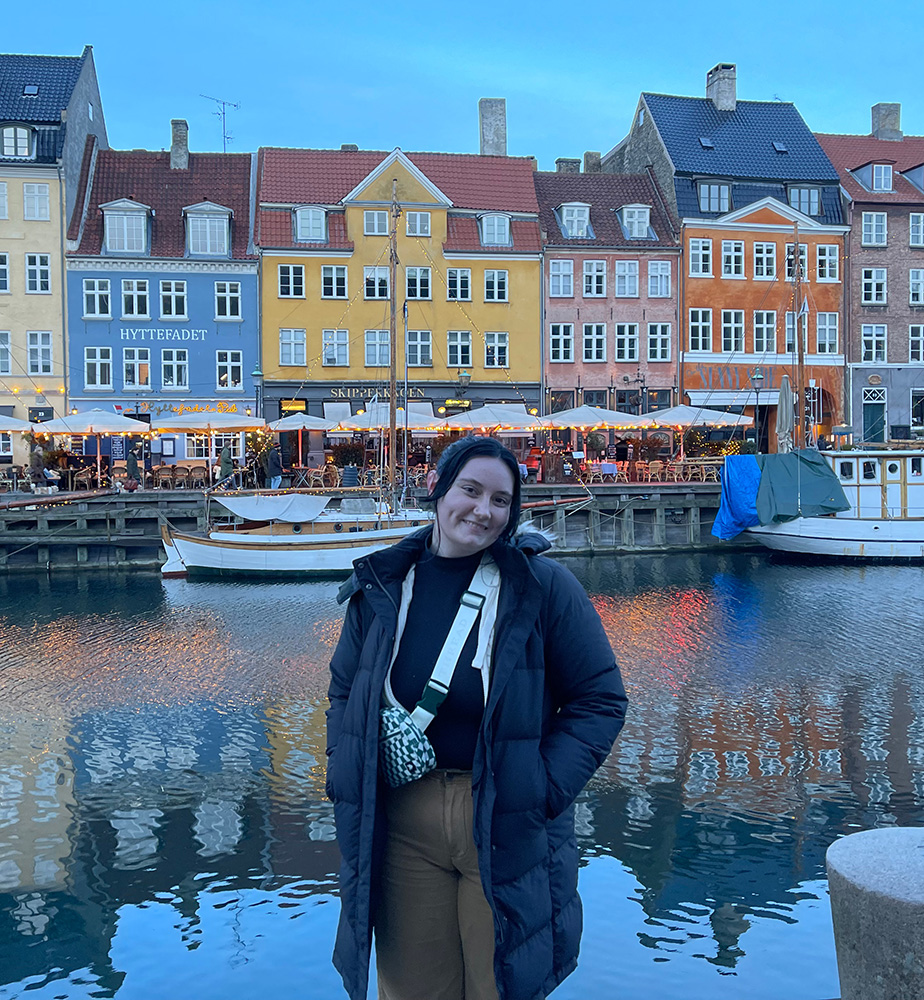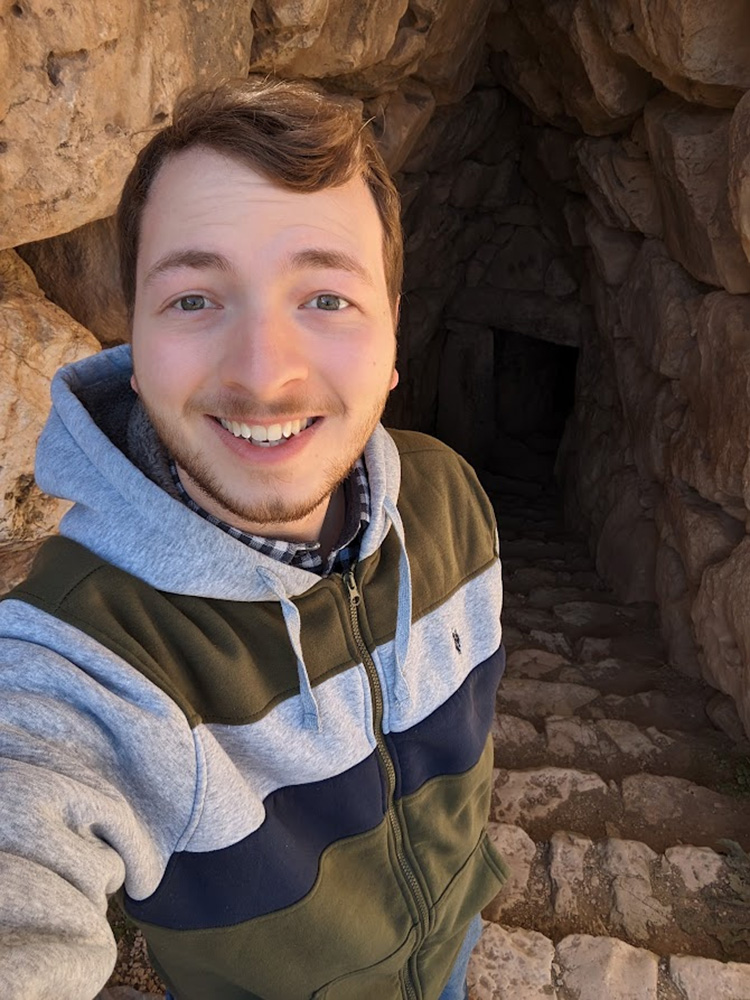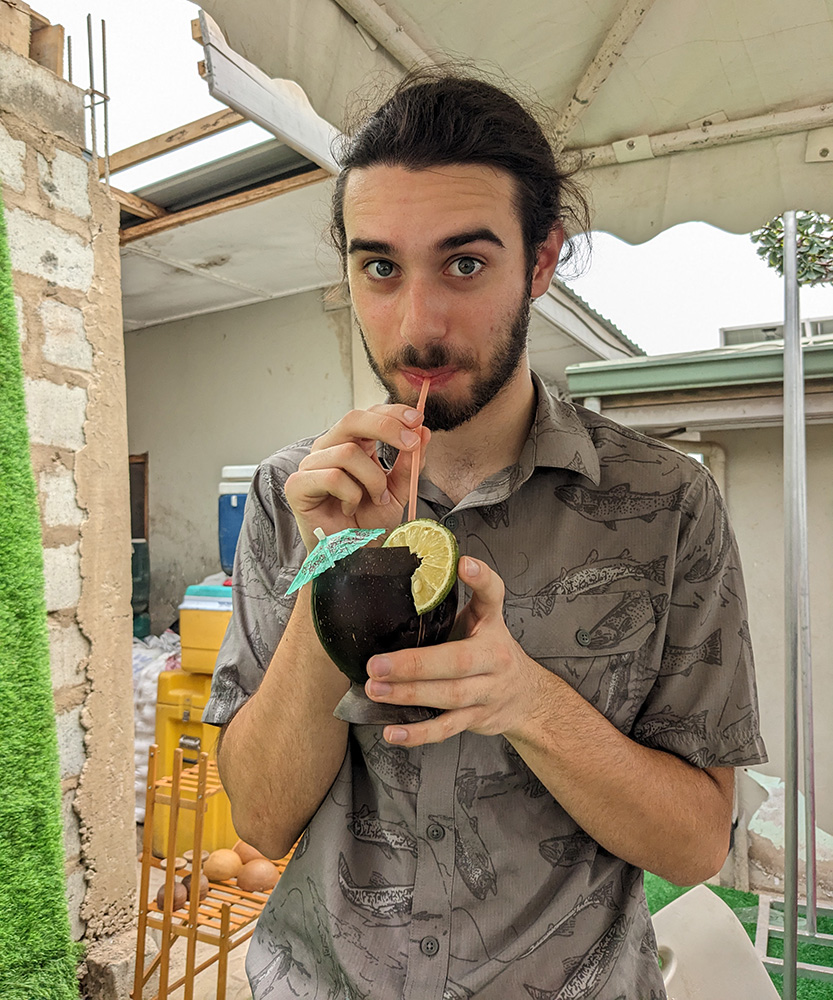By Brendan Looney | Sports Editor | blooney@mail.smcvt.edu




Study abroad trips are one of the many ways in which a student can diversify their learning during their collegiate career. For students who are unfamiliar with the process of studying abroad or the opportunities which these programs provide, the journey may seem intimidating and otherwise difficult. In order to provide clarity on what it means to study abroad, I talked with students who are currently studying abroad. In particular, I spoke with Braden Dwinell ’24 (Anthro., Education Studies, and History/Greece), Tallis Diehn ’24 (Econ./Ghana), Anyssa Logan ’24 (DMC/Denmark), and Frank Loveland ’24 (French and International Relations/France).
How has your study abroad experience impacted your perception of the world?
BD: “I believe my time abroad has really helped me develop as a person. Putting myself in new situations and environments, learning new things and overcoming different challenges, you feel like you’ve changed. I am very grateful for my time abroad as it has been enlightening and eye opening to live another culture. It also makes me sad that I’m eventually going to have to go back to the United States, because I think I could happily spend the rest of my life here.”
TD: “My worldview has been drastically altered. While my core values and tenets remain mostly unchanged, I have had the opportunity to talk about and perceive historical and current events through a nonwestern and non-American lens. I’ve also seen how hard life is in some places of the world, but despite that hardship things like art and culture still thrive.”
AL: “Studying abroad has completely changed my worldview, it’s made me realize a lot about myself and how the world operates around me. Getting the opportunity to experience so many different cultures can be a bit of a shock but it’s definitely worth it.”
FL: “My study abroad experience in France has reaffirmed to me how beneficial it is to speak multiple languages, and how coming to France with a solid language base has allowed me to better integrate in French society while also having a deeper cultural immersion. Traveling enhances one’s perception of the world because it allows you to value the differences that exist around the world in terms of traditions, customs, and ways of living.”
What have been some challenges or difficulties that have impacted you during your study abroad experience?
BD: “I struggled to ration myself and live affordably. I tried to set limitations for purchases but I found that by trying to live cheaply I lacked cultural experience by not trying things. I wish that I had more money to spend on these things to make my decision making easier, but as a student trying to live off my own earnings, I needed to spend wisely.”
TD: “In some ways it’s been a very isolating experience. I had to make all new friends when I got here, and while I really appreciate those new relationships it’s been hard at times, seeing my friends together back home. Being on a different side of the world makes it difficult to stay in touch with people, and I’ve woken up at some weird times to be able to talk on the phone with people.”
AL: “Communication can be a bit of a struggle sometimes, while everyone speaks English here, it does not mean they want to and the signs are all in Danish so it can take a second to figure out what is said or where I am going.”
FL: “The effects of the national strikes that have taken place throughout the semester have not been as profound in the South of France. The only thing that is usually interrupted during strike dates is public transportation which sometimes has complicated my ability to get to classes on time since I live with a host family. Other than that, for the most part I haven’t really had a language barrier since my French is good enough where I can get my ideas across.”
If you could give any advice to students considering studying abroad, what would it be?
BD: “I would learn everything you can about your country before moving abroad. Create a plan with your parents/guardians on communication. You will need a phone, figure out some kind of way to get a working sim card and try to stay and regular communication with your family. Spending is another big aspect of planning, try to make a reasonable budget for necessities based on your living situation.You are living in another country, don’t skip on any opportunity that comes your way. You’ll find the more you step into your life here, the more you’ll come to appreciate it and learn to live happily.”
TD: “For me personally, it’s been an incredibly valuable experience. Anybody that’s considering it should absolutely do it. My only piece of real advice is to be patient with the application and confirmation processes. They are very stressful, but despite what it may seem the organizations do actually want to work with you, and it just takes time and patience.”
AL: “Prepare before coming, do the research, but don’t expect to know everything that is going to happen. Allow yourself to fully be immersed in the culture and experience what is going on around you!”
FL: “Travel with an open mind, be open to learn and adapt to different ways of living, establish habits and routines that you liked to have back at home, and if you are going for language immersion, push yourself to speak the native language as much as possible, don’t be afraid to make mistakes. I also highly recommend living with a host family if you are hoping to have a more authentic and immersive experience.”
While the thought of studying abroad may seem intimidating to some, students who have been abroad have garnered valuable life experience. In taking a risk and going to a place they have never been before, students I spoke with seem to have learned a great deal about who they are and who they want to be in the future through these experiences.

